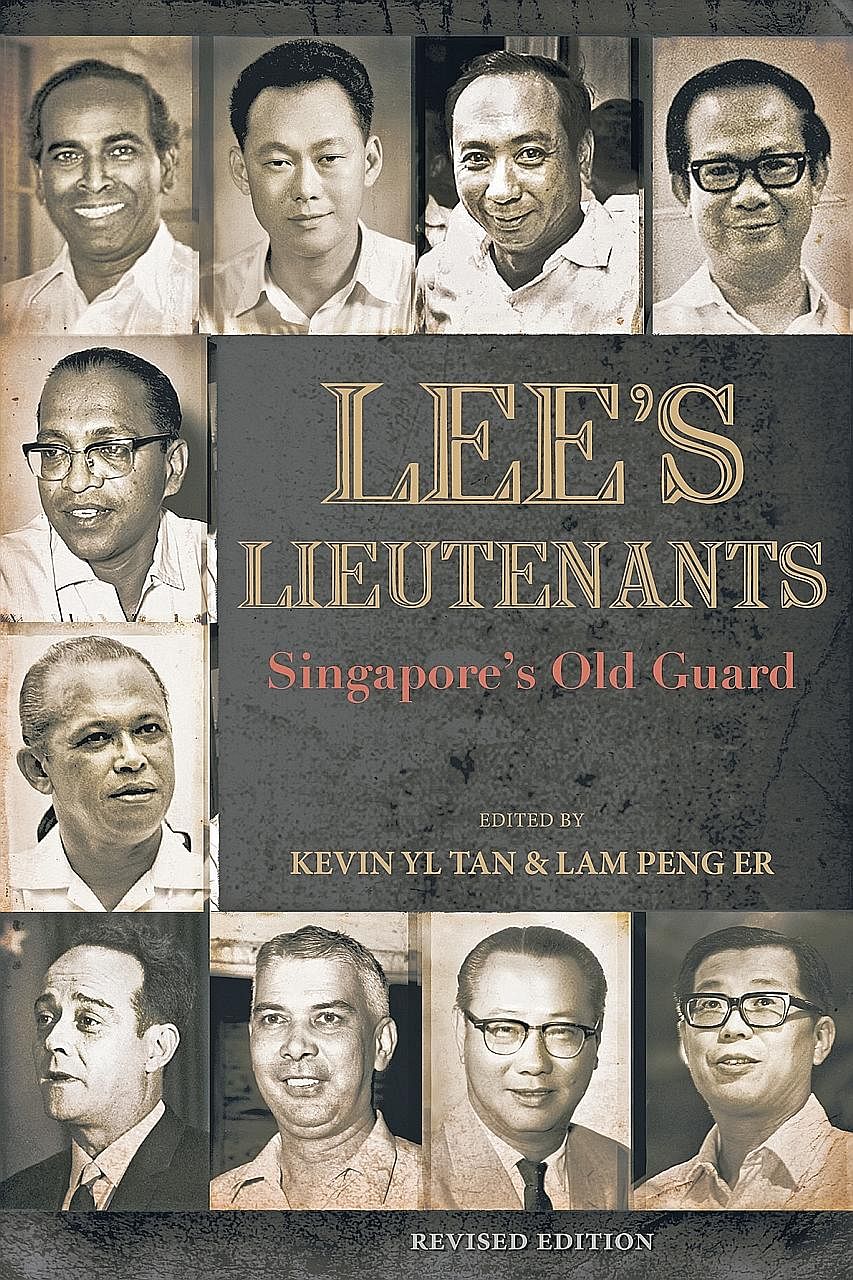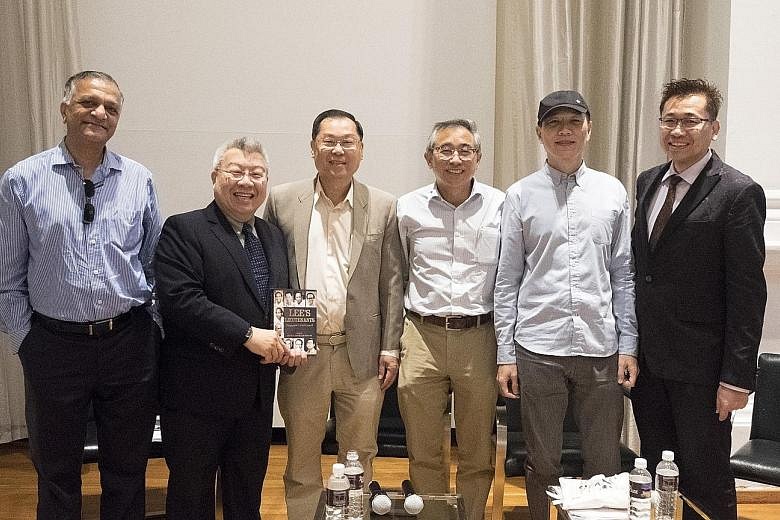Founding prime minister Lee Kuan Yew was a captain who led from the front, while Prime Minister Lee Hsien Loong appears comfortable to let his colleagues do more of the talking when presenting major policies.
The editors of Lee's Lieutenants, a 1999 book about Singapore's first-generation leaders recently reissued by Straits Times Press, would thus give a different title to a book about the current Cabinet.
Dr Lam Peng Er, who edited the book with law academic Kevin Tan, said he would call it Leaders Of Singapore: The Third Generation.
"I would not embed 'Lee' in the title because Lee Hsien Loong's role and impact is less pivotal compared with Lee Kuan Yew's," said the senior research fellow at the East Asian Institute at National University of Singapore (NUS).
That is not an indictment of Mr Lee Hsien Loong's leadership skills, but reflects how an evolving electorate has called for a different style of governance, he added.
In Singapore's early days, it made sense to have a more hierarchical Government, with each lieutenant carrying a specific role, as they had to grapple with the gargantuan task of building a nation from scratch.
"Aside from Eddie Barker, Lee Kuan Yew and his team were not buddies. They were men who were at loggerheads about many things, but were united for a common purpose," said Dr Lam.

For example, one of the lieutenants, Mr Devan Nair, was a member of the communist Anti-British League, but as the book says, he "turned his back on communism" and was one of the convenors of the People's Action Party in 1954.
The book also notes that another lieutenant, Dr Toh Chin Chye, was identified by Mr Lee Kuan Yew "as a minister who sometimes would disagree with him over matters of principles and policies".
The reissue of the book comes amid concern over leadership renewal and who will be named the next prime minister, but Dr Lam and Dr Tan declined to comment on the fourth-generation leaders.
On the current generation, Dr Tan noted the nature of politics in Singapore today calls for a more egalitarian team. "The current generation, in quite a few ways, has it harder than Lee and his lieutenants.
"You are dealing with a different world and electorate. In a time of crisis, people are willing to say if there's a good leader who makes sense, they will follow him, especially if he is better educated."
Dr Tan, an adjunct professor at the NUS Faculty of Law, noted that Singapore's first generation of leaders were "true elites" of their time, being among the 1 per cent of locals who had tertiary education.
He said: "Mass mobilisation was easier then. The current electorate is better educated, so the new leaders cannot operate in the same way.
"The way in which you motivate your troops, so to speak, has to be different - people are looking for thought leadership."
Dr Lam agreed, adding: "Since the time Goh Chok Tong took over as PM, Singaporeans have preferred a more consultative approach rather than an overpowering PM scolding them or asking graduate mothers to produce more babies."
First-generation leaders, including Dr Toh, Mr Lim Kim San, Dr Goh Keng Swee, Mr Barker, Mr S. Rajaratnam and Mr Ahmad Ibrahim, are among the 14 "lieutenants" profiled in the book first published in 1999 when Mr Goh Chok Tong was prime minister. Mr Lee Hsien Loong took over the role in 2004.
Dr Lam and Dr Tan said they were inspired to work on the book as the prevailing narrative at the time was one which lauded Lee Kuan Yew alone for Singapore's success, to the exclusion of other contributors.
"We wanted to move Singapore's discussion about political personalities beyond the one 'big man' theory and say, 'Look, it was not possible for one person to have done everything'," Dr Tan said.
For a book written in an academic style, it did surprisingly well, selling about 8,500 copies after publication in 1999, they said.
More significantly, Dr Tan noted that social studies textbooks in Singapore were revised to include information from Lee's Lieutenants.
"These lieutenants who were quite forgotten began to be remembered again in the mainstream."
The pair decided to reissue the book as it had been out of print for some years and they had requests from people keen to get a copy.
The revised edition has a new preface and epilogue, which takes in events since 1999.
The rest of the content of the book stays the same.
Dr Lam felt it was important for Singaporeans to remember the Old Guard as they are "very much at the heart of the Singapore story".
"Lee and his Lieutenants cast the die of independent Singapore - a meritocratic, multi-ethnic, multi-cultural Singapore.
"Leadership style can change. But fundamental values of our nation should not."
• There will be a meet-and-greet session with Dr Kevin Tan at Books Kinokuniya, 04-20 Takashimaya Shopping Centre, 391 Orchard Road on March 3 at 2pm.
• Lee's Lieutenants costs $32 (including GST).


